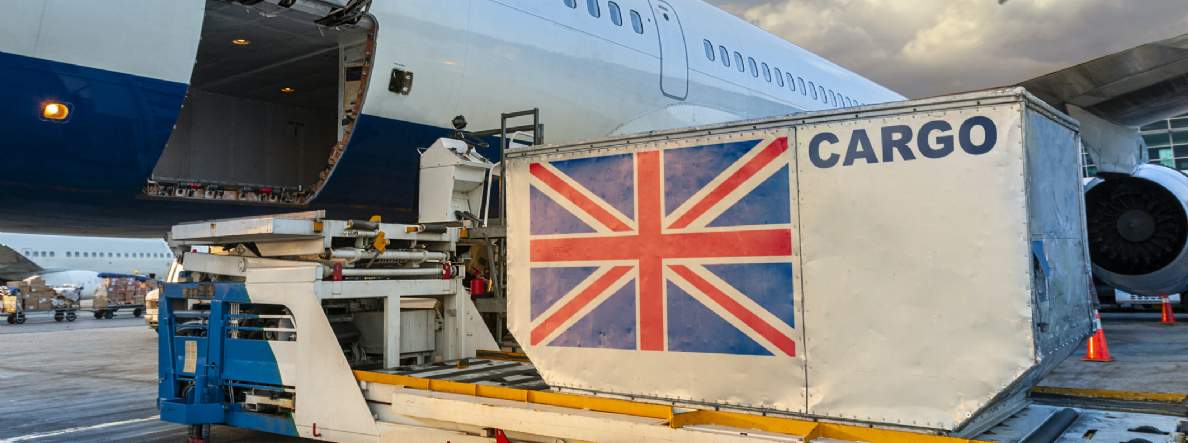In 2019, 45 per cent of the food consumed in the UK was imported, of which 26 per cent came from the EU. Producing, finding and ultimately, trading food is at the heart of the development of society and civilisation, and has shaped the world we live in today.
Post Brexit, the UK is in a position to redefine its global trading identity. For the past 47 years, all elements of external trade policy were defined by the EU. The EU approach to agri-food trade has largely tried to protect domestic food producers from market forces. This has resulted in a high tariff regime for non-EU importers.
In some instances, deliberate barriers to trade have been put in place to ensure EU agricultural systems and consumer preferences are not undermined, some of which have been challenged through the World Trade Organisation (WTO). The WTO principles underpin the concept of free trade and, importantly, they define what constitutes a legitimate and illegitimate barrier to trade.
The WTO’s approach means trade barriers based on agreed international food safety and biosecurity standards are legitimate. However, standards relating to how food is produced (the environmental and welfare standards of products) are not legitimate barriers to trade, despite them being genuine consumer concerns.
In its brave new world as an independent trading entity, the UK’s approach to ‘Global Britain’ is generally freer than the EU’s. This has sparked significant concern from farmers, business and the public that future trade deals may result in cheap imports produced to ‘lower’ environmental and welfare standards, flooding the market and undermining domestic British production. Much of this debate centred around the Agriculture Act, where government rejected several amendments to block food imports if they were not produced to equivalent standards as domestic food production.
In response to the perceived threat to farm incomes from agricultural trade, the Government appointed a Trade and Agriculture Commission (TAC) to advise on the thorny issue of how best to advance the sometimes conflicting interests of British farmers, food producers and consumers in future trade agreements. The TAC’s final report openly admits that safeguarding production standards within liberal trading ambitions is a ‘tough nut to crack’. Ultimately, however, protectionist legislation on production standards is incompatible with WTO rules on free trade.
The TAC seeks to address that by placing the UK as a world-leading force for change in redefining the international framework on trading rules and standards, to address the global challenges of climate change and environmental degradation, while also supporting developing countries in accessing the benefits of the global trading system.
Boris Johnson’s Christmas gift to the nation of the UK-EU Trade and Cooperation Agreement came as a relief to the agricultural industry. The trade deal ensured that trade dynamics between the UK and EU remain largely similar, without tariffs or quotas, with the main impact being increased border friction. Importantly, the trade deal contained a significant intent to cooperate on important emerging issues such as sustainable food systems, climate change, antimicrobial resilience and animal welfare. This is a positive indication of a future in which the UK plays a part in redefining what ‘good’ international trade looks like.
An important recommendation the TAC makes is that the UK Government should put more energy and resource into export promotion and market access. This demonstrates an approach that welcomes trade liberalisation, justifies and enables investment in Britain’s domestic agriculture.
A glimmer of this comes in the form of the Open Doors export campaign, spearheaded by Liz Truss, International Trade Secretary. Ms Truss laments the ‘anti-innovation’ approach of high tariffs and regulation that have previously stifled British agri-food producers from exporting across the globe. Currently, only one in five of the UK’s food manufacturers export produce. Ms Truss wants this to change and has promised government will work with the sector to deliver tailored support on the ground for farmers and food producers who want to drive new export markets.
Farmers will have ‘what they need to succeed’ through masterclasses and mentoring and UK Export Finance will provide funds to boost investment in new facilities, processing plants and machinery. Ms Truss hopes that by removing barriers to export markets, government will support rural jobs, improve productivity and cement British farmers as a core part of Global Britain.
Whether Global Britain can lead in setting a new agenda for environmental and animal welfare trading standards is yet to be determined, but the key question for farmers is whether the additional value created through exports is shared at the farm gate. Proactive farmers could collaborate to invest in export opportunities, but the basic ability of an export-focussed policy to add value to UK farming (rather than UK manufacturing) more generally will depend on the ‘fair trading’ elements of the Agriculture Act, on which we have yet to see any policy detail.

.jpg)

.jpg)
.jpg)
.jpg)




